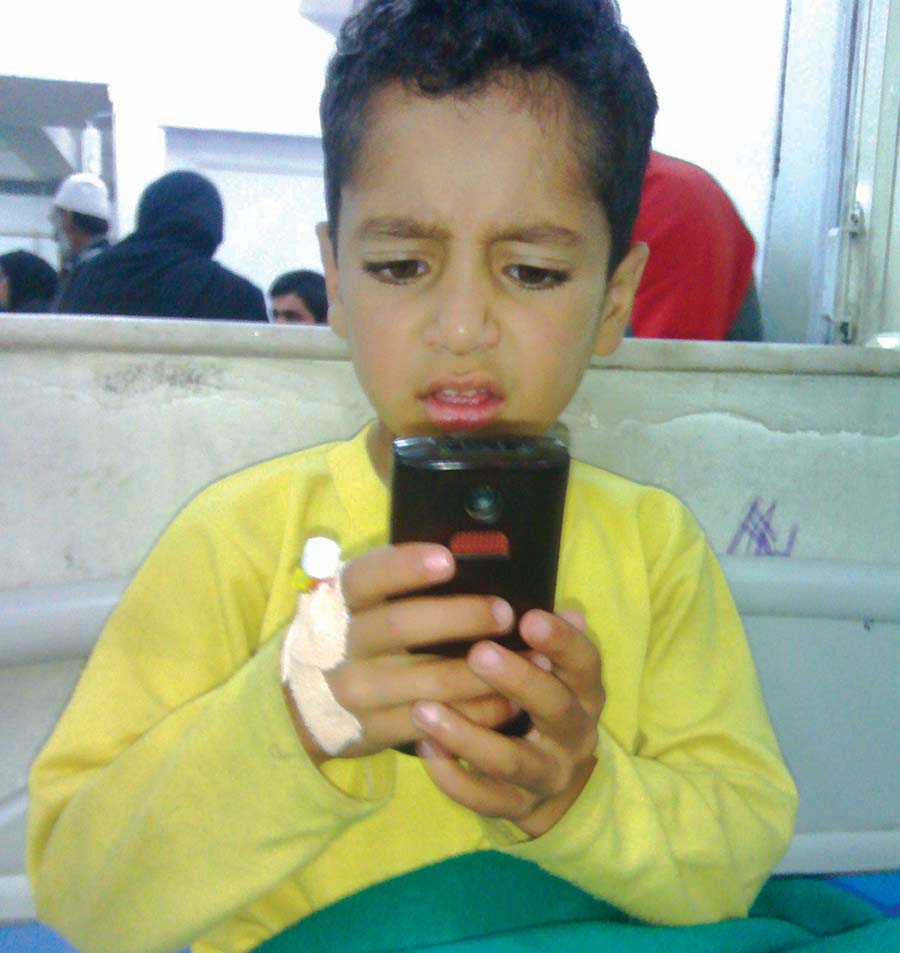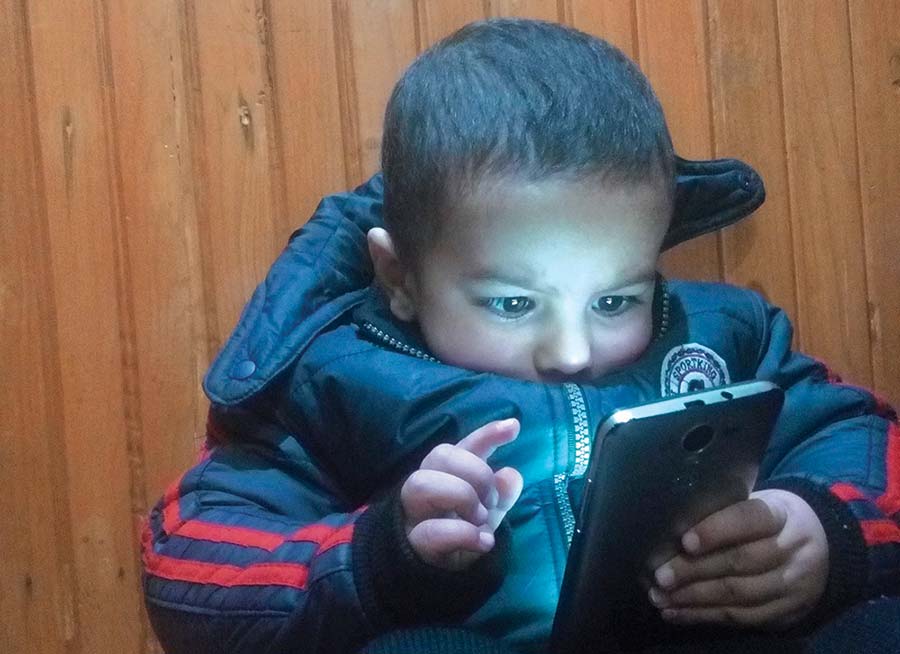by Adil Ahmad Bhat
Parents should strictly play the role of ensuring that they know the content that children access on the mobile phones just the same way they choose for them what food to eat, what clothes to wear and which people to interact with.
When you see a nine-year child locking in a room for a couple of days in the company of a phone what will you do? Or when you see your child watching pornographic materials?

Well, those are among the adverse effects of mobile on children. In the world today, it has become the norm for children to have smartphones. Earlier the parents may discourage it but the use of phones in imparting education has changed the game.
Kids can manoeuvre their way around the applications and settings in no time. Having phones has, however, rendered the children prone to many disadvantages. Some talk to their friends for very long hours while others cannot stay without their games apps installed. They are exposed to the internet that is an abode of unfiltered knowledge.
This exposure can, however, has many effects on the child. Cases of phone addiction are anything to go by. Now there are children who cannot do anything without a phone. A phone determines their waking up and their sleeping. Some kids even are on phone while eating. They get games and any other kind of entertainment from mobile phones. All their habits are centred on mobile phones.

Decreased academic performance is a major effect. Today, most kids have their phones with them in school and this means that they end up looking forward to the school breaks for them to communicate with their friends. Some even go to the extent of playing games in the class instead of concentrating on the lessons taught. Their concentration, in this case, is compromised and they end up missing important lessons and points taught in class and they end up having very poor grades.
Children who are highly exposed to mobile phones are at risk of having disturbed brain activity. Mobile phones predominantly function on electromagnetic waves for all customs of communication. The brain has its own electric compulsions and communiqué is conceded out in the neural system. Children lack a strong shield hence the waves generated from the mobile phones may easily go right into the inner parts of the brain. Research has shown that talking on the phone for minutes as short as two minutes can change the electrical activity within a child. This influences the change in mood patterns and the tendency of the child’s behaviour. The child’s ability to grasp and learn new things is affected and the focus and concentration rate goes down.
The sleep patterns of children are disrupted. We find that children with mobile phones end up spending many hours on their gadgets talking to their friends or playing games or watching videos. Most of them end up doing these things till way past their bedtimes and this ends up disrupting their sleep patterns and makes them unproductive in the things they are supposed to be doing, like actively participating in class.
Research shows that cases of children communicating with strangers and ending up into scary situations are often. Some of those strangers could be kidnappers or molesters who exchange contacts with the children.
Children following internet games to the extent of killing themselves using phones are frequent cases. The games usually come with procedures that should be followed step by step. Children innocently do that, little do they know, that they are in the process of taking away their lives.
The human mind is made to manufacture information and ideas by itself through practice. When children get all the information from the phones, they don’t put their brains to work hence poor thinking and reasoning capacity. Instances of getting answers for question in their examinations and getting assignments done from google are also common among the school going children which should be highly discouraged.

Children with mobile phones may end up viewing inappropriate media. The media has all sorts of material which may not necessarily be filtered information fit for a child’s consumption. They may come across texts and images that are not appropriate in the groups they are in and the people they chat with. Pornography content is all over the internet. Those videos should not be watched or even accessed by children because they have an age limit. Out of curiosity, children land into this mess, more often now.
Phone use is a major cause of depression among children. As they say, too much work without play makes Jack a dull kid. This is where, for a child, their eyes are always glued to the phone and they never get time to play or socialize physically with other children. Children on social media may come across cyber-bullies who pester and bully them on the internet. They are prone to having depression when they either do not get the attention they want, see their peers living better lives or when they are given mean comments on their walls and pages. Before this is known, most of the time the damage is always already done and it takes more for them to be comfortable and go back to a healthier mental state.
In conclusion, mobile phones have brought more harm than good, at least for the children or the people who have permitted the instrument to take over them completely.

Children are getting exposed to many harmful things and material and this is slowly affecting them in many ways. The fact that technology is growing day by day is undeniable, but children should be taken care of and their mobile phone activity monitored by their parents, teachers or guardians.
Mobile phones are essential but we have a long way to go for them to be used for right purposes especially among children. What has to be made clear is that parents should strictly play the role of ensuring that they know the content that children access on the mobile phones just the same way they choose for them what food to eat, what clothes to wear and which people to interact with.
(Author is pursuing his MBBS from ASCOMS in Jammu. The opinions expressed in this article are those of the author’s and do not purport to reflect the opinions or views of Kashmir Life.)















